Abstract
Twenty-four hour intragastric acidity and nocturnal acid secretion were measured in 10 males with duodenal ulcer in four separate 24 hour studies, during which the subjects ate normal meals, had unrestricted physical activity, and consumed their customary quantities of tobacco. The medication consisted of either placebo, cimetidine 200 mg tds and 400 mg at night, or ranitidine 150 mg bd, or 200 mg bd. Ranitidine 150 mg bd decreased mean 24 hour hydrogen ion activity from 41.8 mmol/l to 13.1 mmol/l (-69%, P less than 0.001) and nocturnal acid output from 6.1 mmol/h to 0.6 mmol/h (-90%, P less than 0.01). This degree of inhibition was significantly greater than that due to cimetidine (P less than 0.001 for 24 hours acidity, less than 0.05 for night time acid output). Plasma concentrations of ranitidine were greater than the IC50 for more than eight hours after the 150 mg dose. Ranitidine 200 mg conferred no additional advantage. Ranitidine 150 mg bd should be tested in therapeutic trials.
Full text
PDF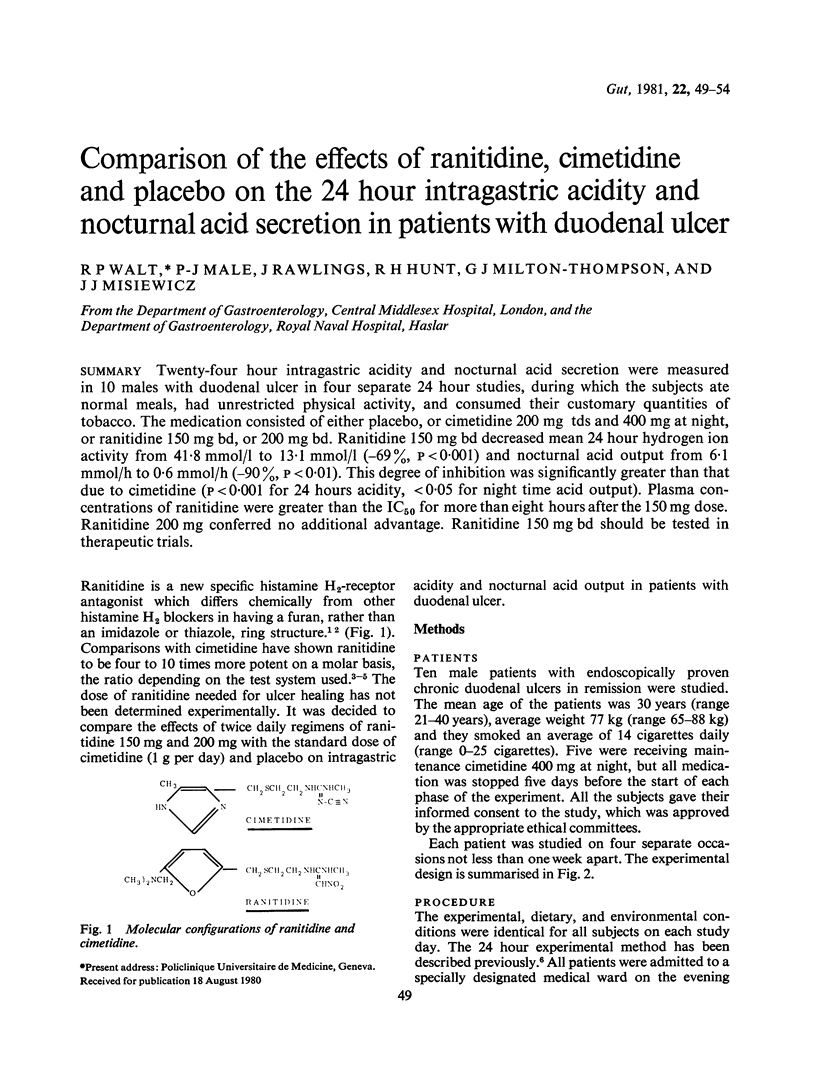
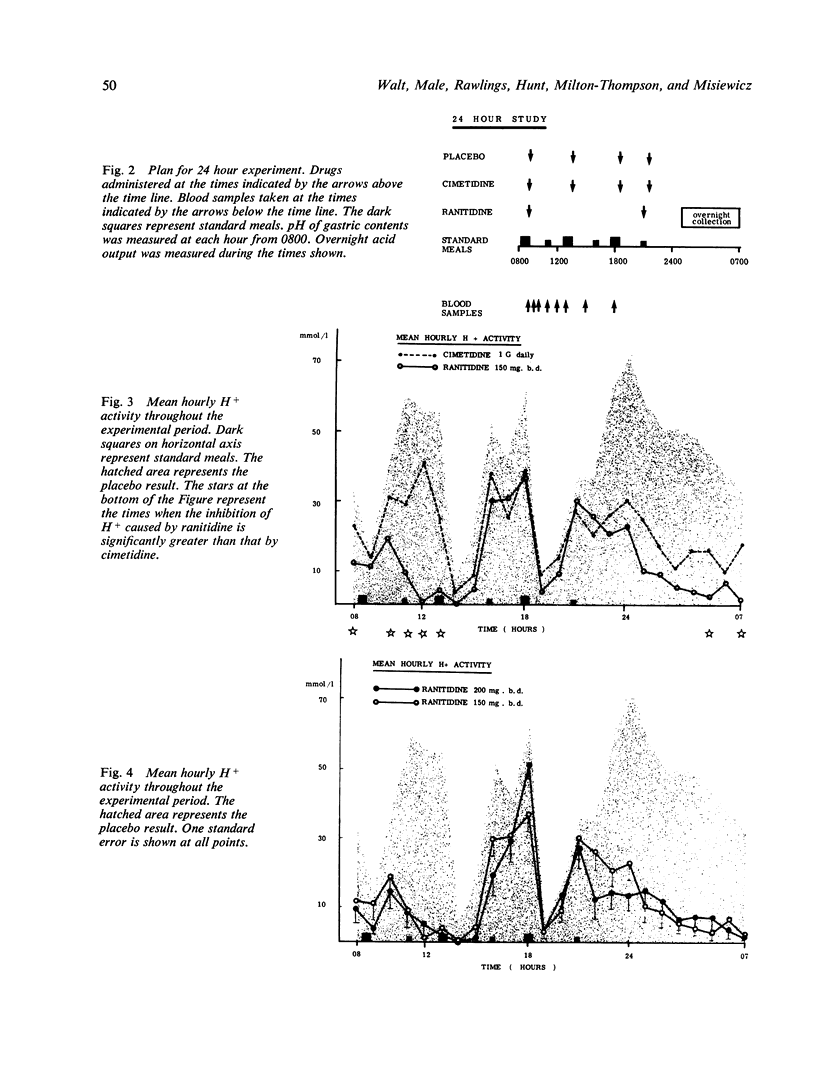
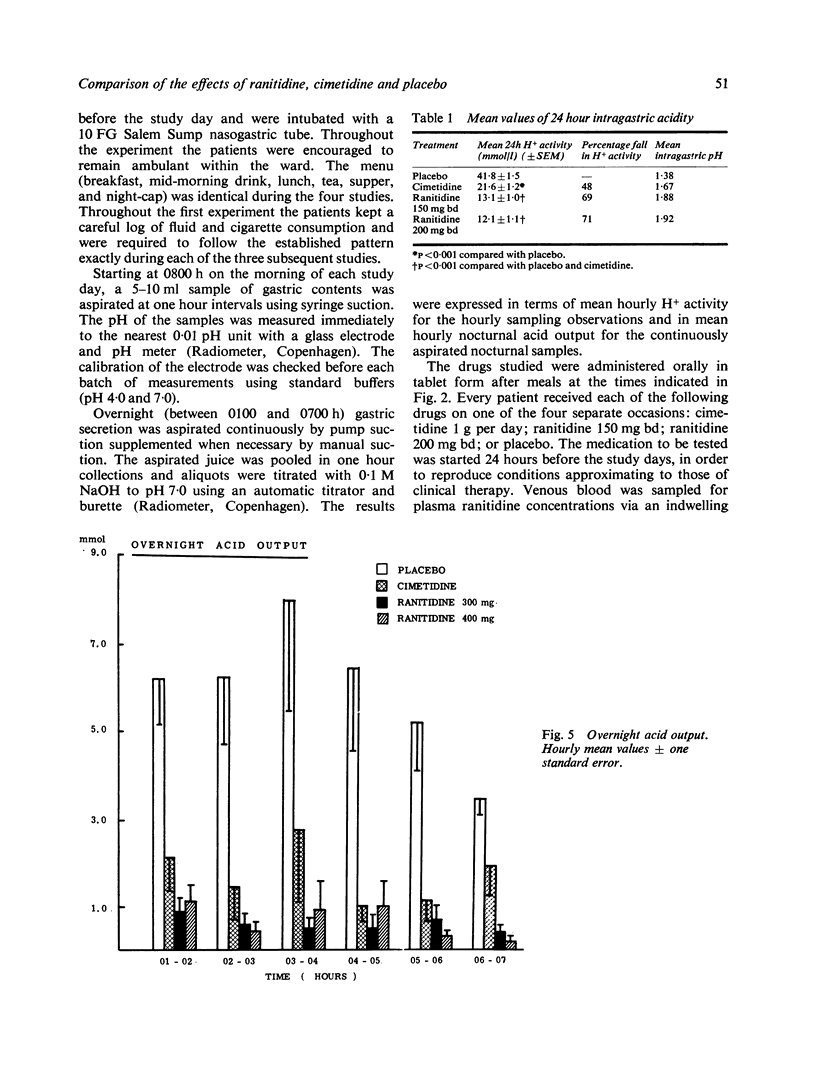
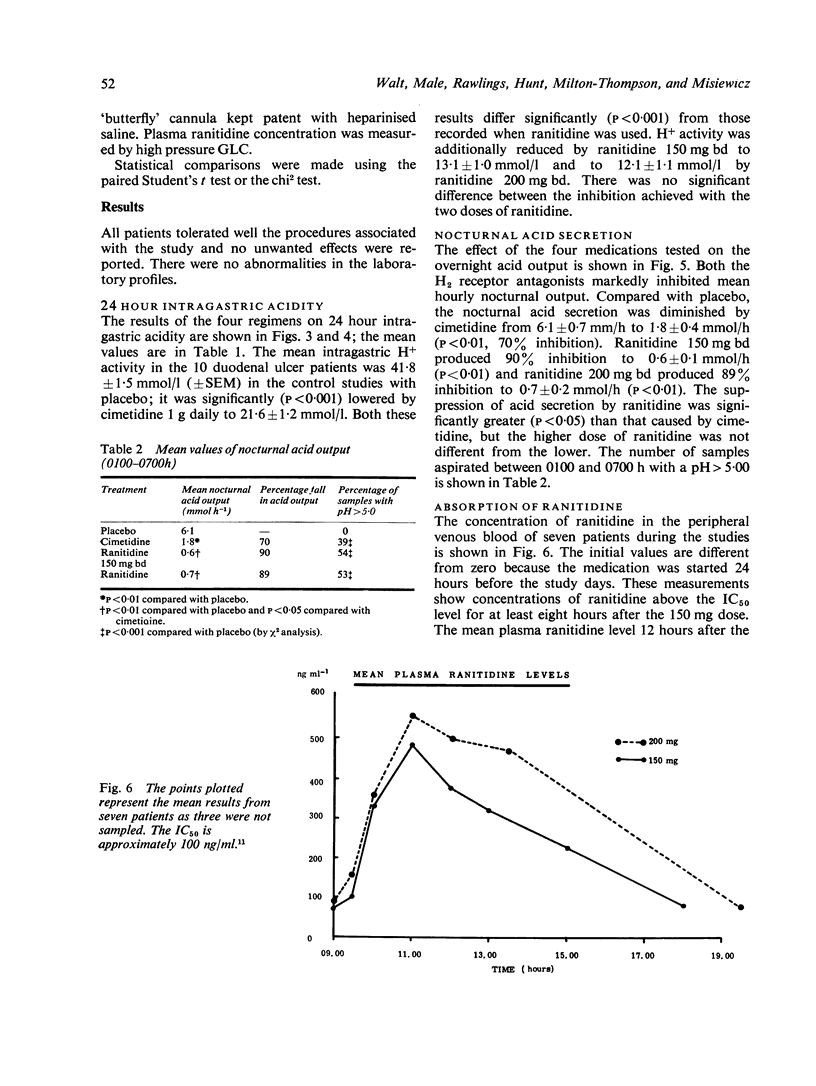
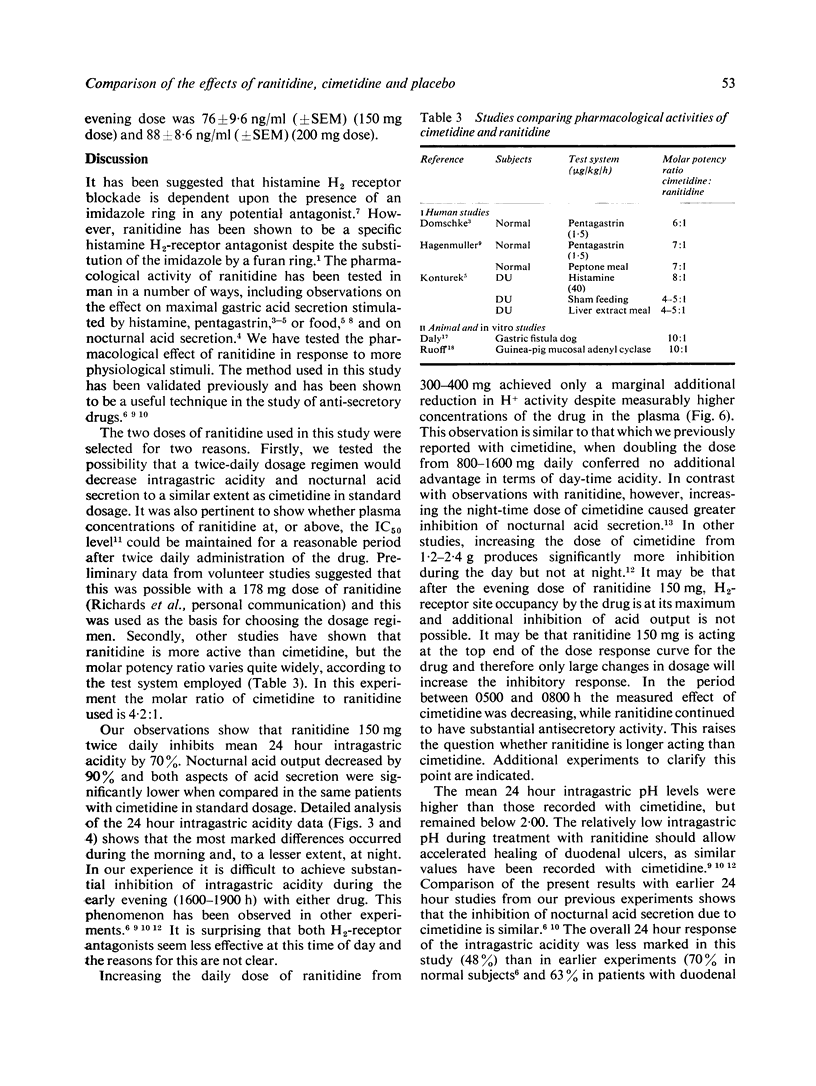
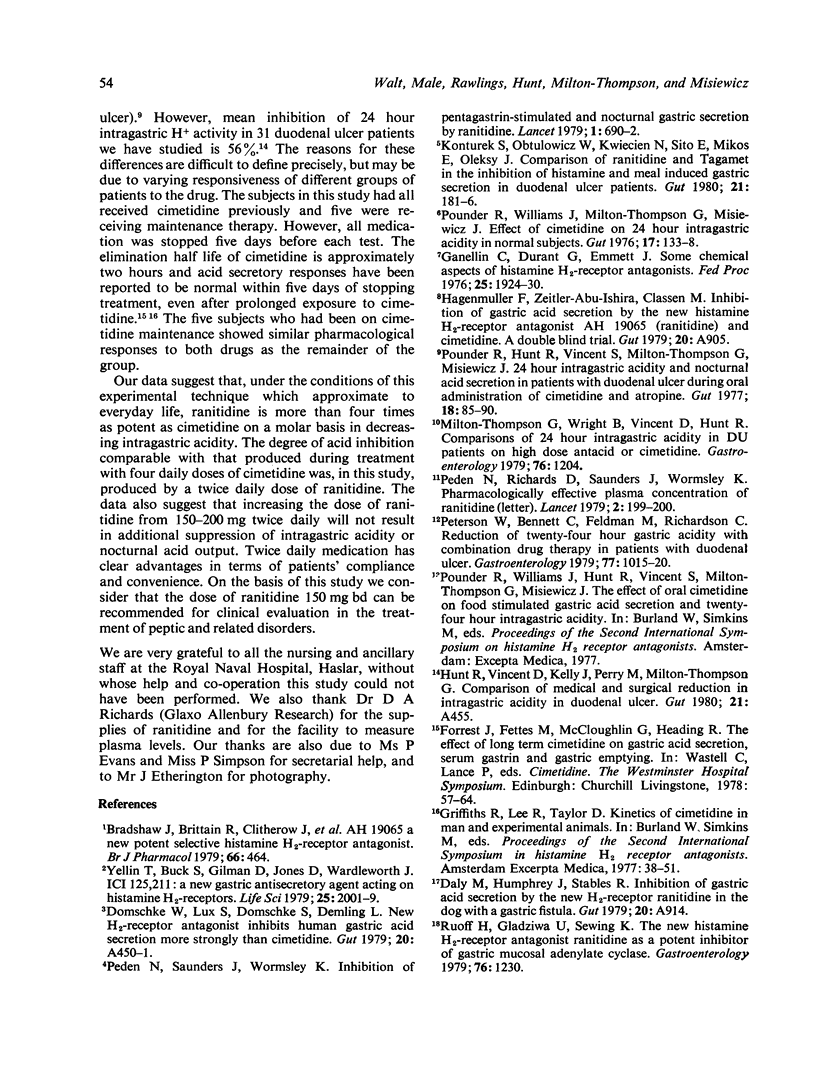
Selected References
These references are in PubMed. This may not be the complete list of references from this article.
- Ganellin C. R., Durant G. J., Emmett J. C. Some chemical aspects of histamine H2-receptor antagonists. Fed Proc. 1976 Jun;35(8):1924–1930. [PubMed] [Google Scholar]
- Konturek S. J., Obtulowicz W., Kwiecien N., Sito E., Mikos E., Oleksy J. Comparison of ranitidine and cimetidine in the inhibition of histamine, sham-feeding, and meal-induced gastric secretion in duodenal ulcer patients. Gut. 1980 Mar;21(3):181–186. doi: 10.1136/gut.21.3.181. [DOI] [PMC free article] [PubMed] [Google Scholar]
- Peden N. R., Richards D. A., Saunders J. H., Wormsley K. G. Pharmacologically effective plasma concentrations of ranitidine. Lancet. 1979 Jul 28;2(8135):199–200. doi: 10.1016/s0140-6736(79)91466-1. [DOI] [PubMed] [Google Scholar]
- Peden N. R., Saunders J. H., Wormsley K. G. Inhibition of pentagastrin-stimulated and nocturnal gastric secretion by ranitidine. A new H2-receptor antagonist. Lancet. 1979 Mar 31;1(8118):690–692. doi: 10.1016/s0140-6736(79)91146-2. [DOI] [PubMed] [Google Scholar]
- Peterson W. L., Barnett C., Feldman M., Richardson C. T. Reduction of twenty-four-hour gastric acidity with combination drug therapy in patients with duodenal ulcer. Gastroenterology. 1979 Nov;77(5):1015–1020. [PubMed] [Google Scholar]
- Pounder R. E., Hunt R. H., Vincent S. H., Milton-Thompson G. J., Misiewicz J. J. 24-hour intragastric acidity and nocturnal acid secretion in patients with duodenal ulcer during oral administration of cimetidine and atropine. Gut. 1977 Feb;18(2):85–90. doi: 10.1136/gut.18.2.85. [DOI] [PMC free article] [PubMed] [Google Scholar]
- Pounder R. E., Williams J. G., Milton-Thompson G. J., Misiewicz J. J. Effect of cimetidine on 24-hour intragastric acidity in normal subjects. Gut. 1976 Feb;17(2):133–138. doi: 10.1136/gut.17.2.133. [DOI] [PMC free article] [PubMed] [Google Scholar]
- Yellin T. O., Buck S. H., Gilman D. J., Jones D. F., Wardleworth J. M. ICI 125,211: a new gastric antisecretory agent acting on histamine H2-receptors. Life Sci. 1979 Dec 3;25(23):2001–2009. doi: 10.1016/0024-3205(79)90604-0. [DOI] [PubMed] [Google Scholar]


